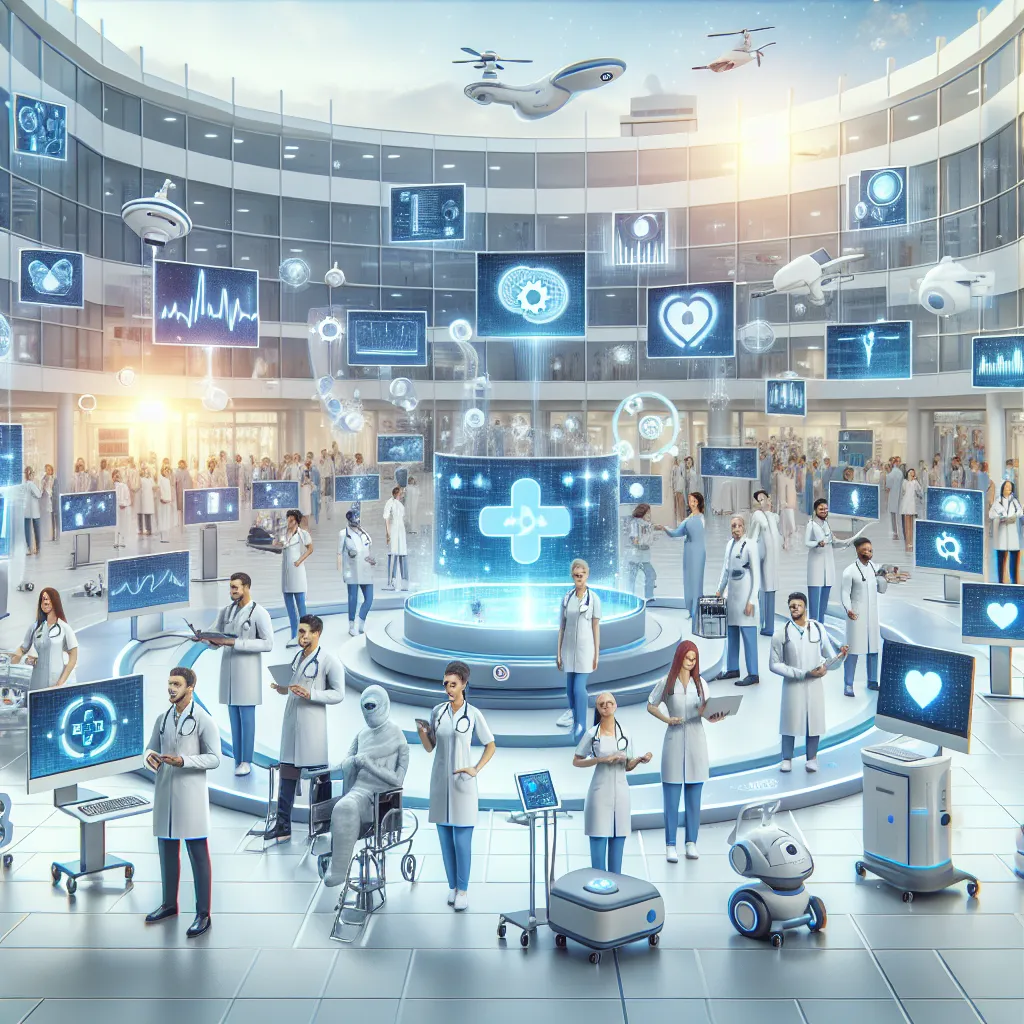The Impact of AI and Machine Learning on Healthcare
Revolutionizing Healthcare with AI and Machine Learning has significantly impacted the healthcare industry, from improving diagnostics to enhancing patient care. The integration of AI and machine learning technologies has brought about a paradigm shift, revolutionizing how healthcare is delivered and received.
One of the most significant impacts of AI and machine learning in healthcare has been the advancement in diagnostics. These technologies have enabled healthcare professionals to analyze complex medical data with greater speed and accuracy than ever before. Through techniques such as image recognition and natural language processing, AI and machine learning algorithms can identify patterns and anomalies in medical images, lab results, and patient records, leading to earlier and more accurate diagnoses.
Moreover, AI and machine learning have empowered healthcare providers to personalize treatment plans and care pathways for individual patients. By analyzing vast amounts of patient data, including genetic information, lifestyle factors, and treatment outcomes, these technologies can assist in identifying the most effective interventions for each patient, ultimately leading to better outcomes and reduced costs.
Another crucial impact of AI and machine learning in healthcare is their role in predictive analytics. These technologies can forecast potential health issues and disease outbreaks by analyzing large-scale data sets, enabling healthcare organizations to allocate resources more effectively and proactively address public health concerns.
Furthermore, AI-powered virtual health assistants and chatbots have simplified and streamlined the patient experience by providing personalized medical advice, scheduling appointments, and monitoring post-treatment progress. These virtual assistants contribute to improving patient engagement and adherence to treatment regimens, ultimately leading to better health outcomes.
In conclusion, the impact of AI and machine learning on healthcare is profound, revolutionizing the industry and ushering in a new era of personalized, data-driven, and efficient care delivery. As these technologies continue to advance, their potential to transform healthcare for the better is only beginning to be realized.
How Technology is Transforming the Healthcare Industry
Technology has been revolutionizing the healthcare industry, particularly with the advancements in AI and machine learning. These technologies are transforming the way healthcare is delivered, making processes more efficient, improving diagnostics, and enhancing patient care.
AI and machine learning algorithms have the capability to analyze large datasets to identify patterns and trends that may not be immediately apparent to human healthcare providers. This can lead to earlier detection of diseases, more accurate diagnoses, and personalized treatment plans for patients.
One of the key areas where AI and machine learning are making a significant impact is in medical imaging. These technologies can analyze medical images such as X-rays, MRIs, and CT scans with a level of accuracy that can rival, and in some cases, surpass human radiologists. This can lead to faster and more accurate diagnoses, ultimately improving patient outcomes.
Additionally, AI-driven predictive analytics are being used to forecast patient admission rates, optimize resource allocation, and even anticipate potential outbreaks or epidemics. This proactive approach to healthcare management can lead to better preparedness and more effective responses to public health crises.
Furthermore, AI-powered chatbots and virtual health assistants are enhancing the patient experience by providing round-the-clock support, answering queries, and even offering basic medical advice. This not only improves access to healthcare information but also reduces the burden on healthcare professionals, allowing them to focus on more complex cases.
In conclusion, the integration of AI and machine learning technologies is revolutionizing the healthcare industry, leading to improved diagnostics, personalized treatment plans, more efficient healthcare delivery, and enhanced patient experiences.
Revolutionary Applications of AI in Modern Healthcare
Revolutionizing healthcare with AI and machine learning has opened up a new era of possibilities, transforming the way we diagnose, treat, and manage diseases. The revolutionary applications of AI in modern healthcare are at the forefront of this transformation, leveraging the power of data and advanced algorithms to drive innovation in the medical field.
AI-powered diagnostic tools are enhancing the accuracy and efficiency of disease detection. Machine learning algorithms can analyze large volumes of medical imaging data to identify patterns and anomalies that may elude human observation. This has the potential to revolutionize early detection of diseases such as cancer, allowing for timely intervention and improved patient outcomes.
Furthermore, AI is being utilized to personalize treatment plans for patients, taking into account individual genetic makeup, lifestyle factors, and treatment responses. This tailored approach has the potential to optimize treatment outcomes and minimize adverse effects, marking a revolutionary shift from the traditional one-size-fits-all model of healthcare.
Another revolutionary application of AI in healthcare is the use of predictive analytics to forecast disease outbreaks and allocate resources efficiently. By analyzing vast datasets, machine learning algorithms can identify patterns indicative of potential health crises, enabling proactive measures to be implemented to mitigate risks and safeguard public health.
In addition, AI-powered virtual health assistants and chatbots are providing personalized and responsive support to patients, offering information, scheduling appointments, and even monitoring patient status. This marks a revolutionary advancement in patient care, enhancing accessibility and engagement while reducing the burden on healthcare professionals.
As AI and machine learning continue to advance, their revolutionary applications in modern healthcare hold the promise of greater accuracy, efficiency, and personalization in disease management, ultimately leading to improved patient outcomes and a more sustainable healthcare system.



